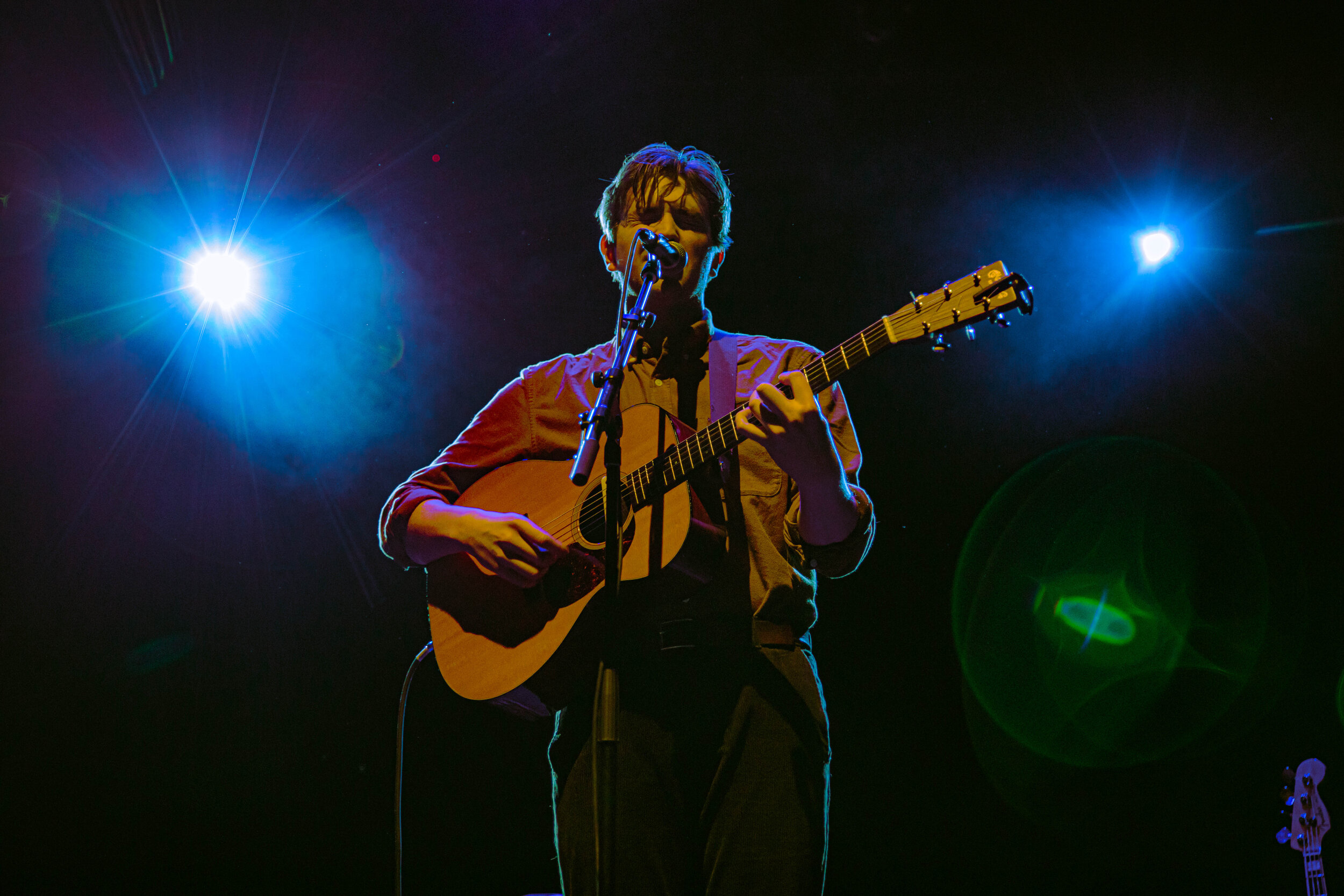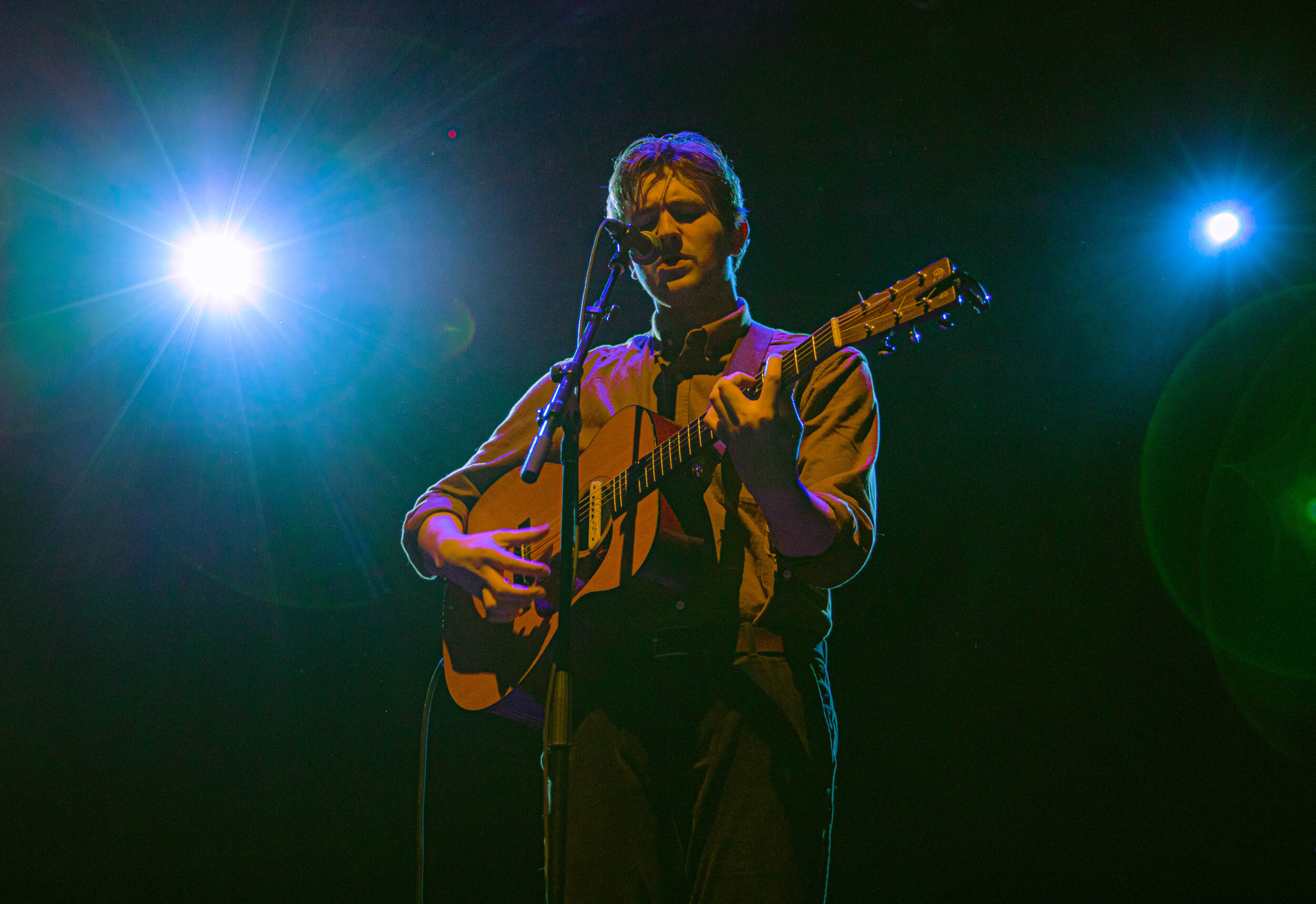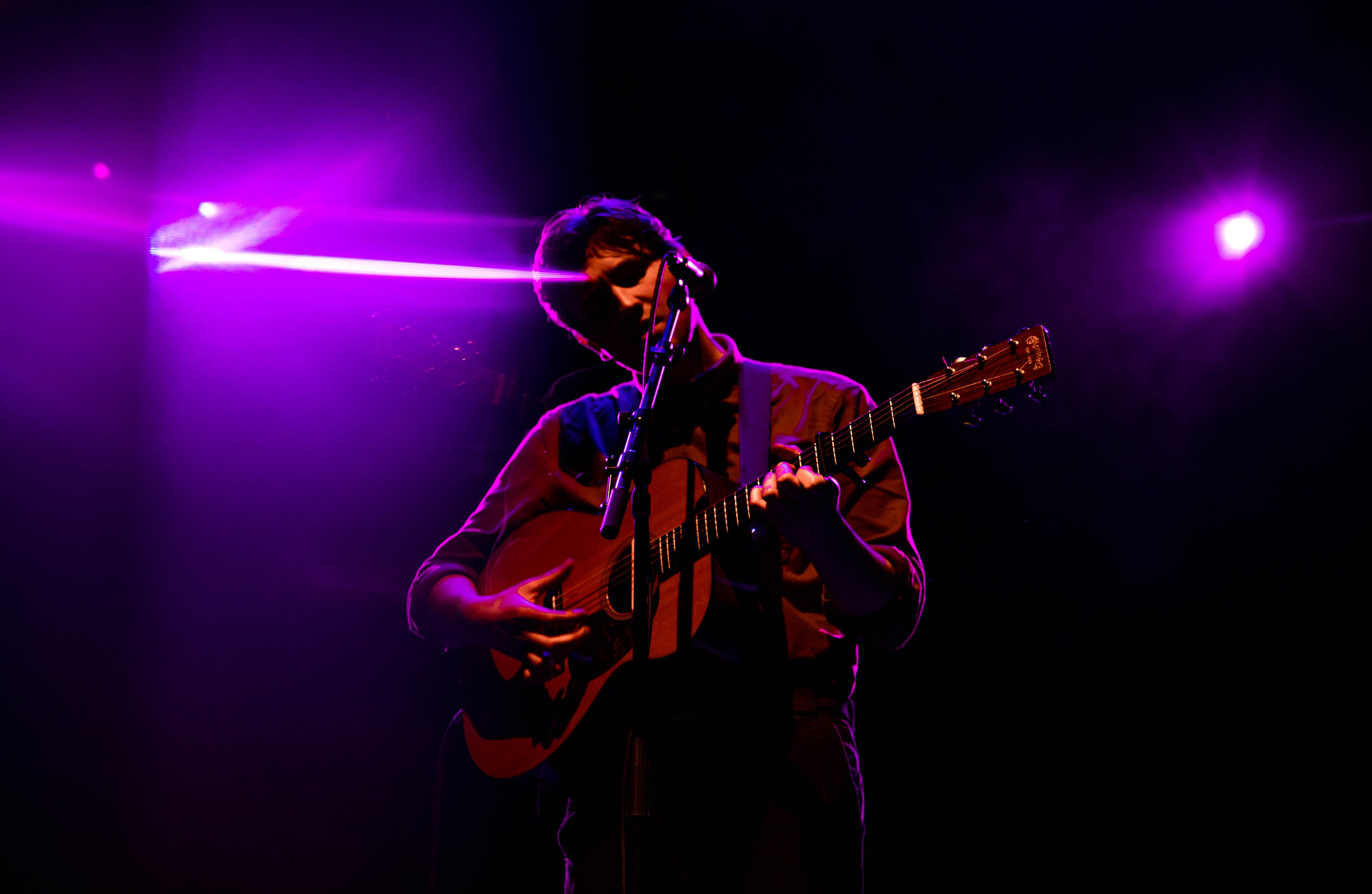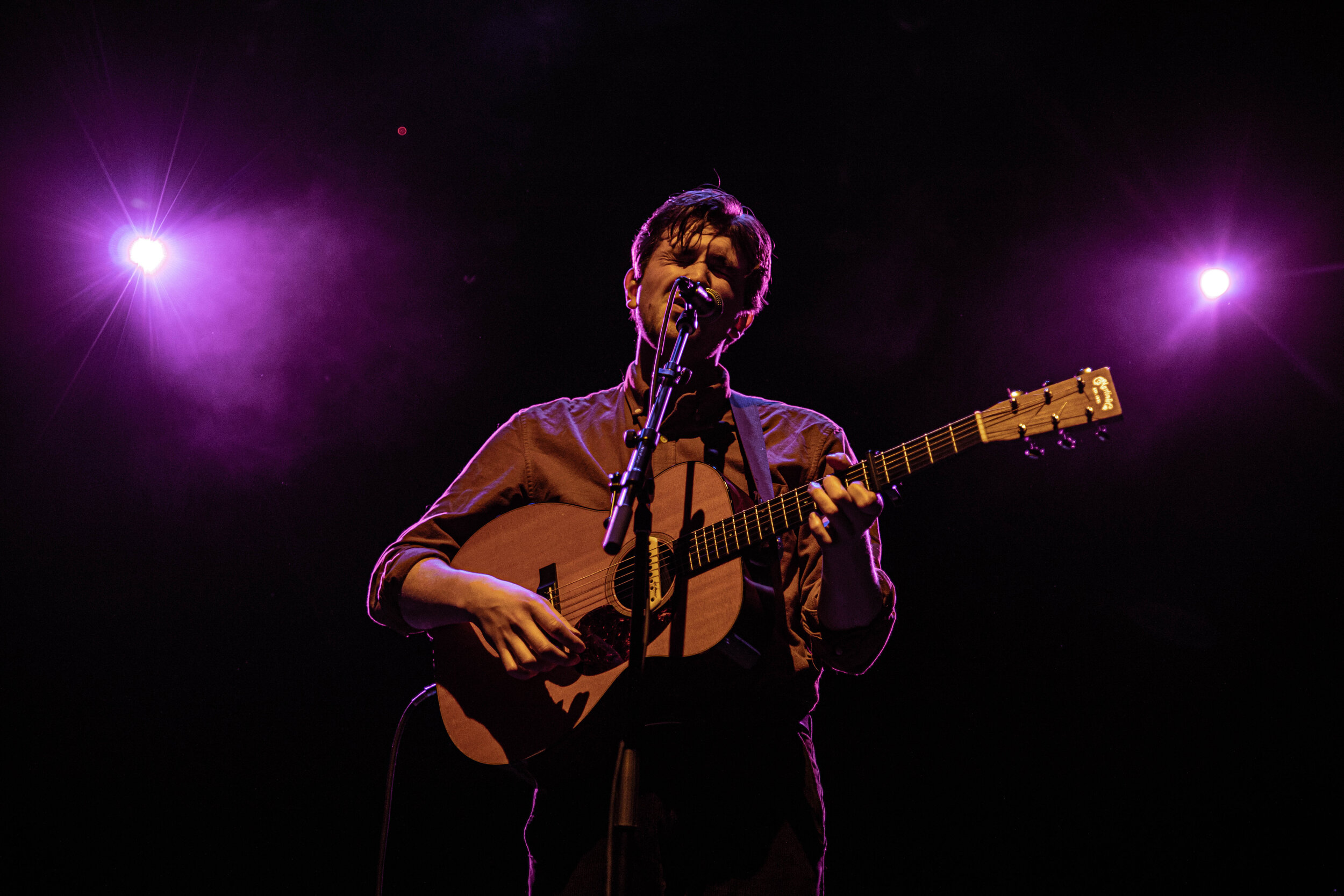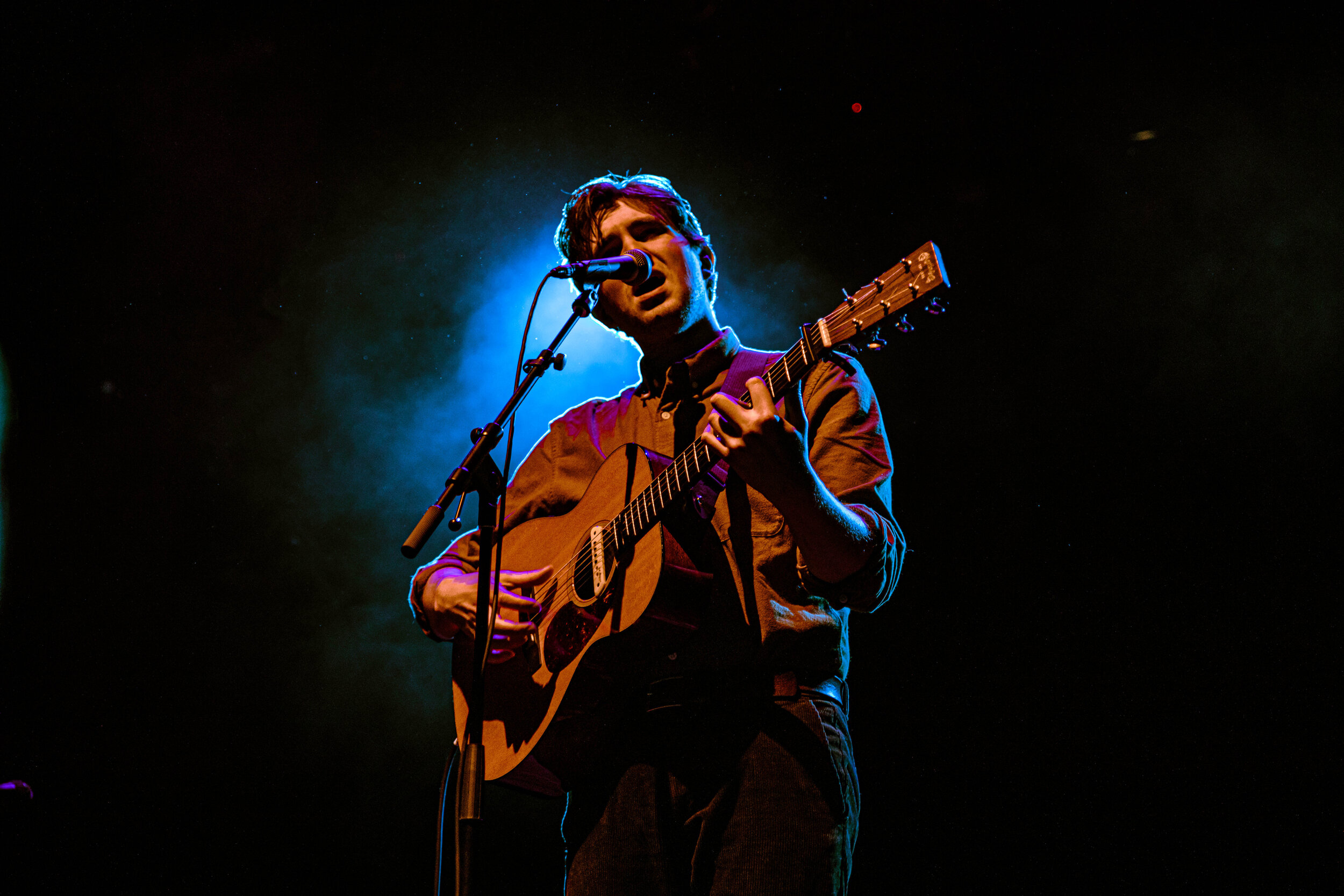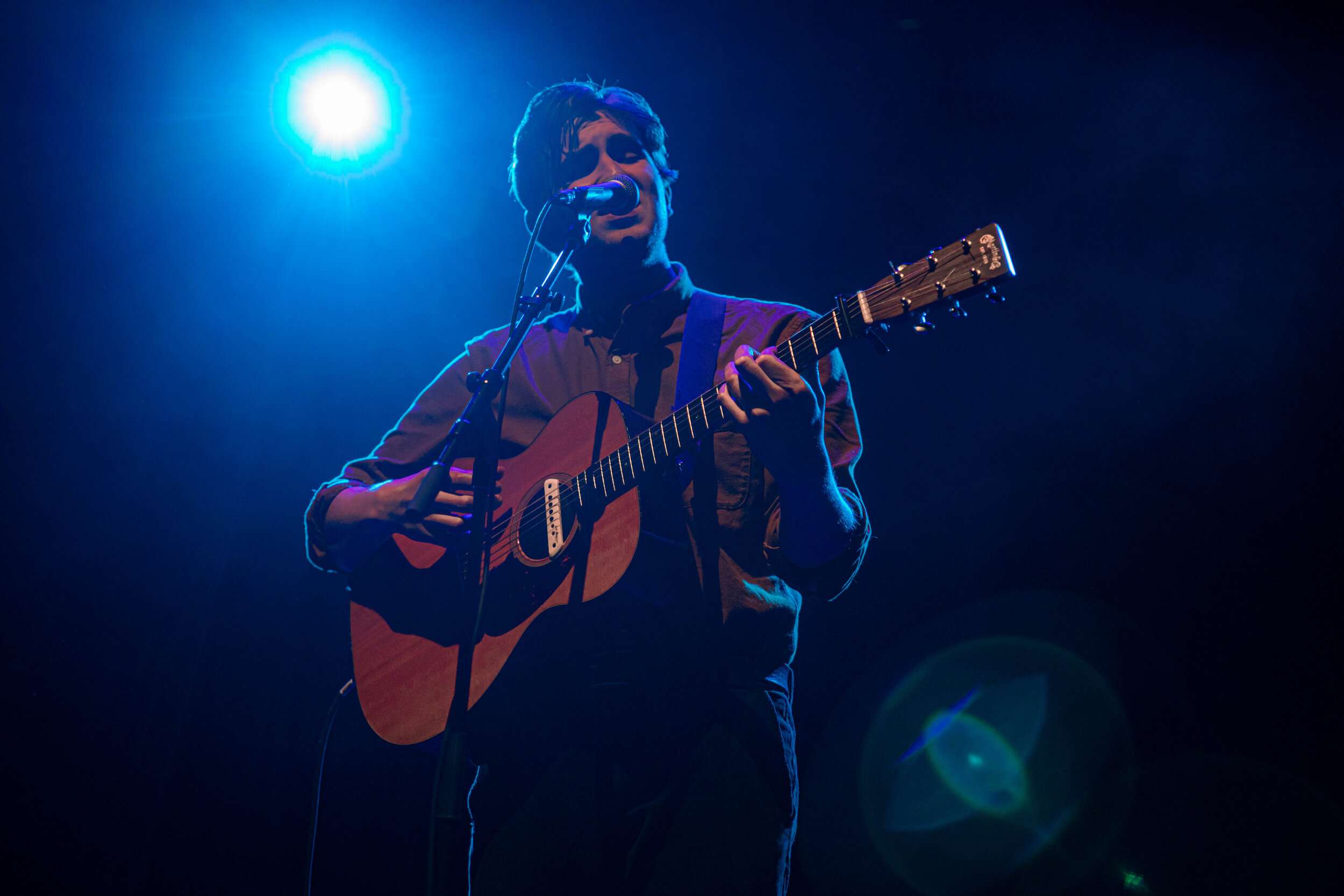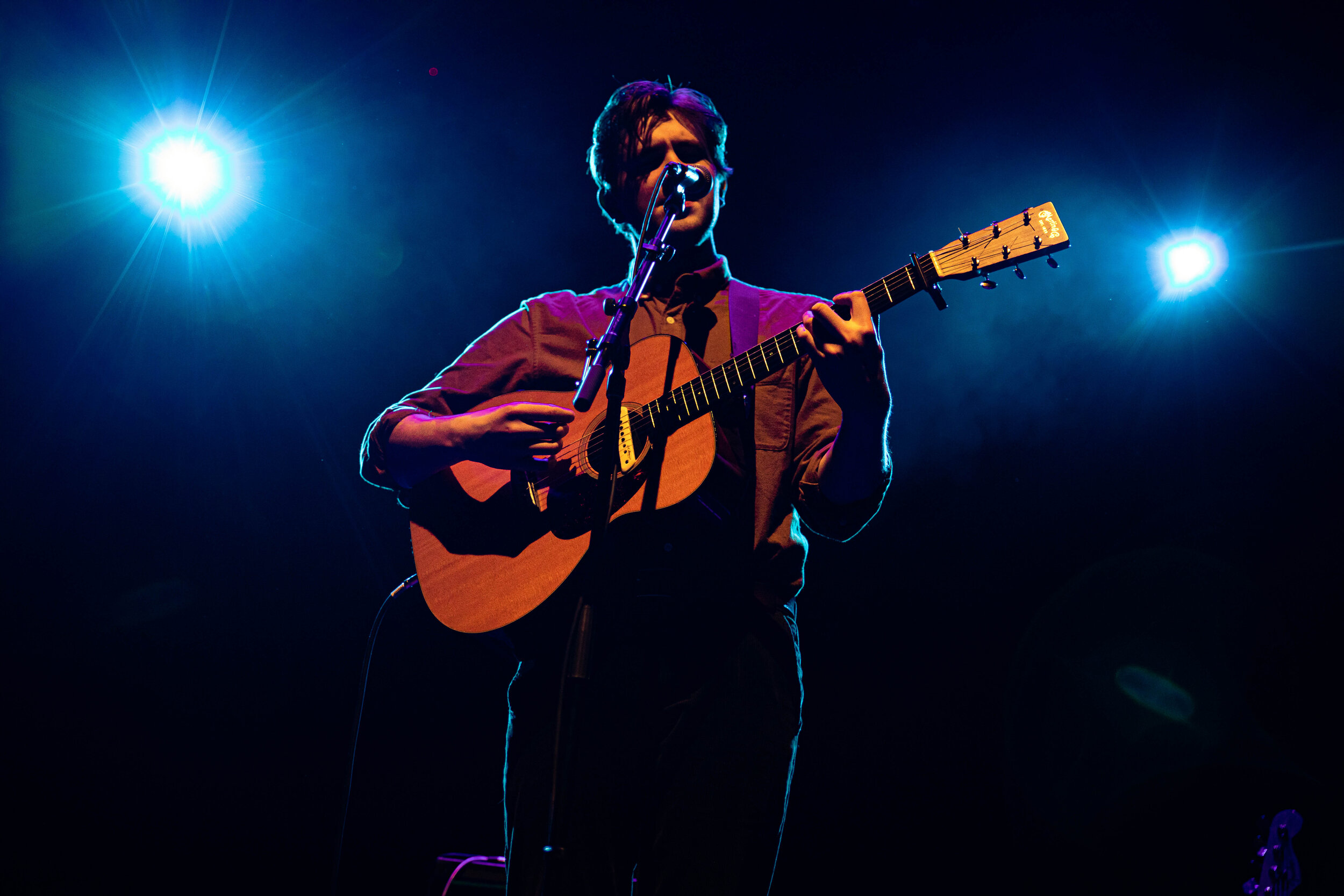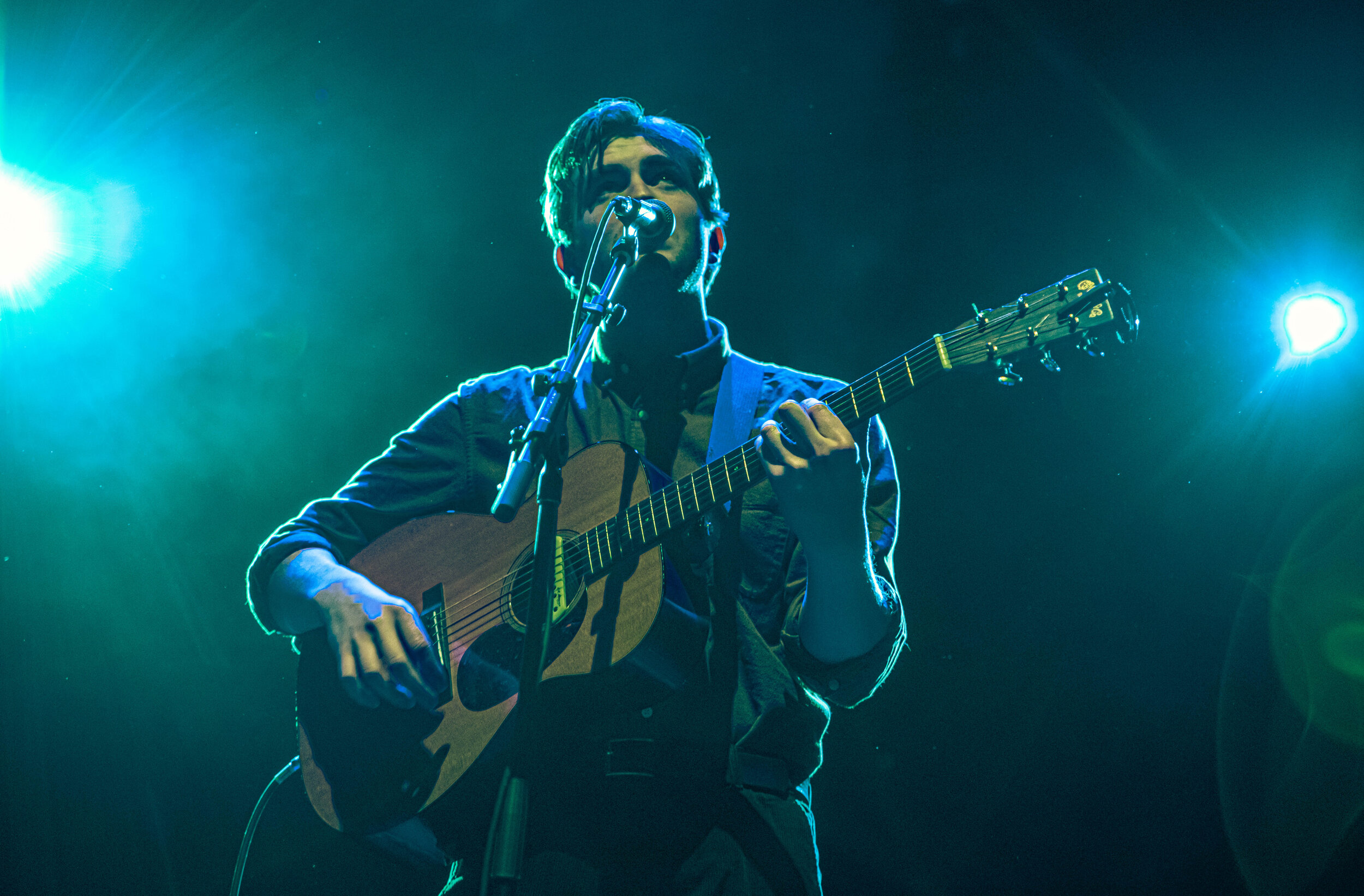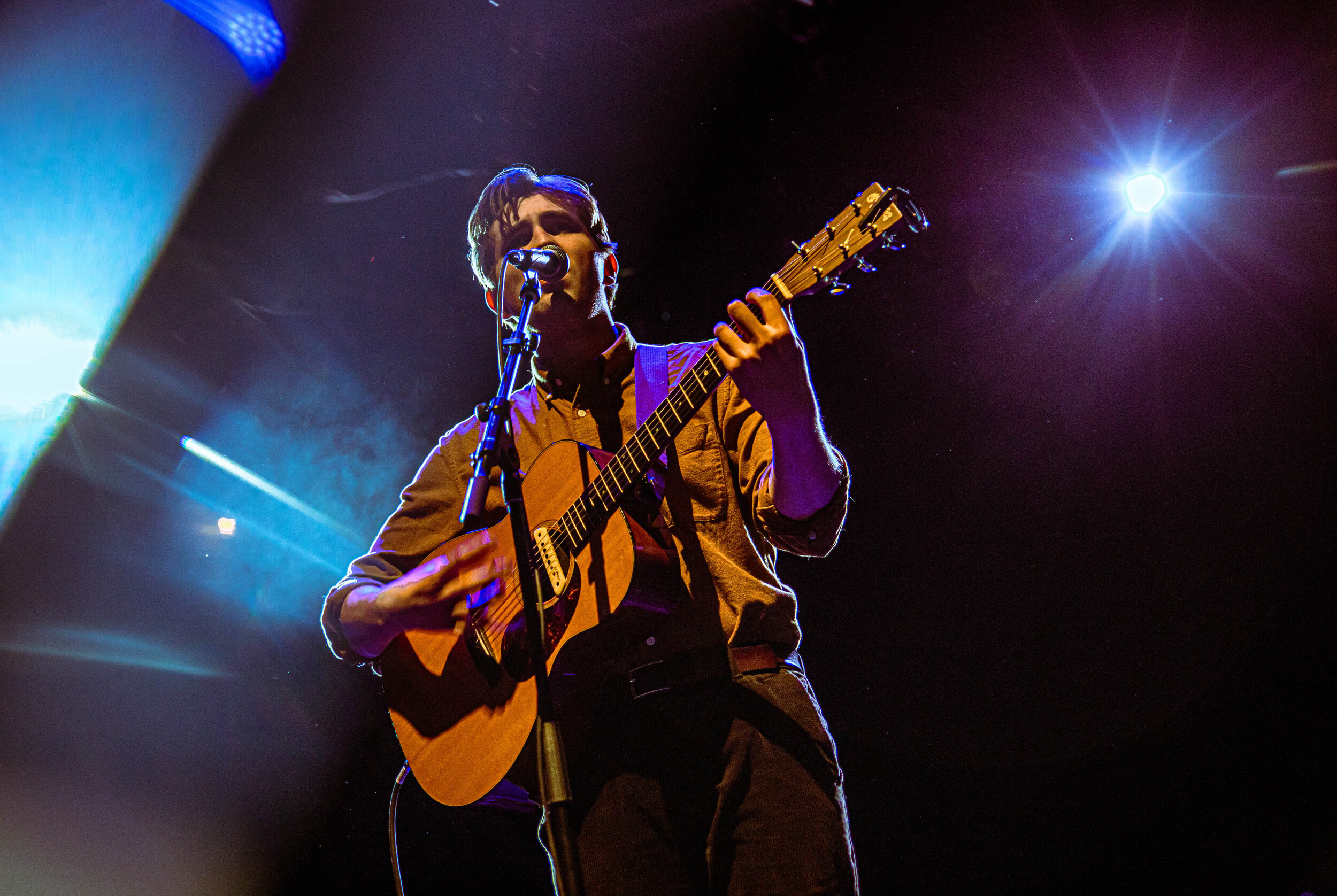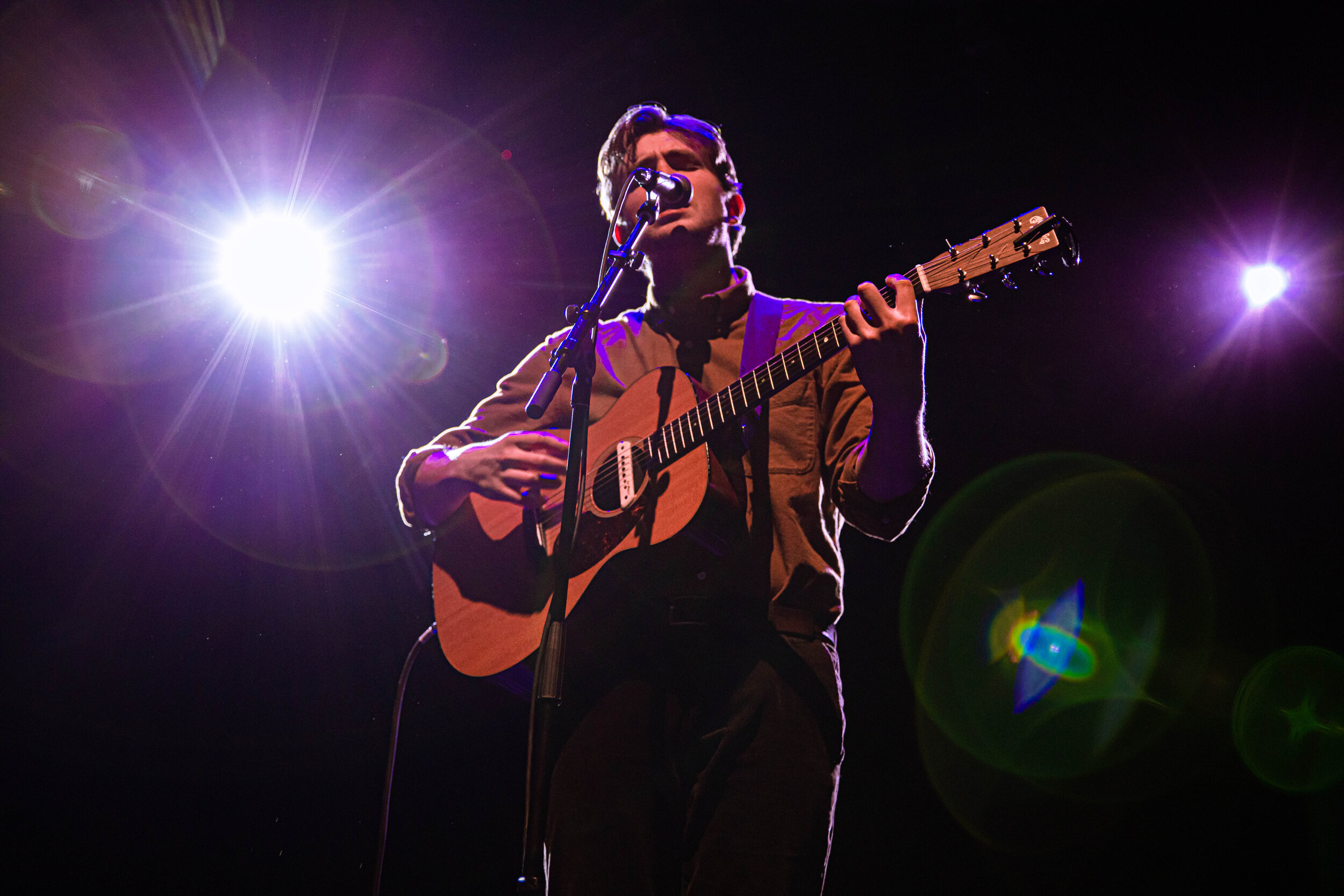A Chat With: Axel Flóvent
Axel Flóvent was one of my favorite sets and best discoveries of the annual Iceland Airwaves Festival in 2019. The Icelandic singer-songwriter instantly won me over with his mesmerizing melodies and his knack for painting a picture through his lyrics on his songs like “Forest Fires” and “Your Ghost.” Recently, Flóvent embarked on his first proper U.S tour in support of Radical Face, and he took some time to chat before his set at Thalia Hall in Chicago. Tune in below for more on Flóvent’s take on the Icelandic music scene, how he overcomes creative challenges, and the themes of his upcoming debut album.
What do you remember as your first musical memory?
I feel for me it was a few moments of evolution, how my love evolved for music. The first memory was probably learning to play power chords. My uncle taught me to play power chords and I learned two AC/DC songs and I felt some kind of freedom from learning them because then I could try to write on my own. Cause it’s so easy the way he taught me. The way he taught me was that you could write on your own and do it anywhere, and it works.
So this tour is your first time in North America, right?
Yeah it’s the first time touring properly here.
What have been some highlights from the first leg of the tour, or something you’re looking forward to?
I’ve always wanted to play in New York! I was supposed to do a little east coast tour back in 2016 cause I did SXSW. I didn’t get my visa in time so we had to cancel the shows then, and since then I’ve been wanting to play in New York and do these east coast dates we had to cancel. That was the thing I was mostly excited about, making up the gigs I was supposed to do. Seattle was amazing also. The most amazing memories I had so far were playing in Seattle because they had a lot of connection to Iceland. A lot of them had gone to Iceland for Iceland Airwaves last year. It’s a really cool festival and it’s so nice getting people who are already connected to the music. I don’t know what to expect at all supporting for Radical Face and getting new crowds but in each city there’s always a few people coming from knowing Iceland Airwaves and Icelandic music.
I actually went to Iceland for the first time last year and saw you at Iceland Airwaves myself. I loved the city and the festival, so as someone who lives there, what are a few spots you’d recommend for catching new music or just any sort of hidden gems for music fans who are maybe attending the fest for the first time?
I feel Iceland is so unpredictable when it comes to music. For me there’s no venue that always has something going on. What’s big in Iceland is like release concerts and people get so hyped up for it, and people get so hyped for these up and coming artists. I haven’t been connected to the Icelandic music scene for such a long time, so it’d be hard for me to recommend something. But definitely Iceland Airwaves is probably the best time to go to Iceland because every artist in Iceland tries to go on that festival and play. That’s the biggest thing for me. I haven’t played in Iceland since Airwaves.
So before you settled back in Iceland, you moved to Amsterdam when you were younger. Do you think that nomadic lifestyle has impacted your songwriting?
Definitely. I think I moved to Netherlands because I was signed to a label there. I moved there to be closer to them to be able to work with them. It didn’t work the way that I thought it would. I moved there and ended up being alone in my apartment writing a lot and just kind of reflecting on my dream of going into the city. I wrote “City Dreams” out of this idea of trying to make myself believe that I’m the place I wanted to be in and I made it. I’d gotten out of Iceland only to discover that being there two years out of Iceland, looking at Iceland like “I really need to move back.” Because everything I want to be close to is there actually and not out there. I really don’t have anyone or any roots [In Amsterdam]. So in darker times it’s hards to go by without any roots or anything really. That’s kind of like my album that I’m releasing in the end of the year. I wrote about this experience and this journey.
Do you think you’re more creative in Iceland, or do you think that struggle drove you to write these songs? Do the dark times tend to turn into art?
Yeah I feel like as a songwriter you crave for things to write about that have a stronger meaning in a way. I think a problem a lot of songwriters have, especially when they go professional, they kind of start to not have anything that they have to do other than music. Now they’re at this place where they’re more comfortable and don’t need to go to a 9-5 job. When you’re at this comfortable state of mind….I feel like that was the biggest drive I had. When I was a teenager and I had to work jobs I didn’t like. I was so motivated to get out of it, that I got out of it quickly, but now I feel so privileged so it’s really hard to get in touch with your struggles.
Like I can’t be too happy, I need to write songs!
That’s really the feeling! And I feel like a lot of artists have this problem because there’s so many more DIY, doing it ourselves and we’re working to get an income. Then when we get closer to do it professionally, it’s like what do we really write about? A lot of songwriters in my position just have a repetitive feeling of writing love songs but not really meaning anything.
That’s really interesting! It’s almost like a catch 22, like you want to be successful enough but not too comfortable.
You want to be in touch with real life struggles because otherwise you can’t write things that are relatable. I feel like that’s the thing. You don’t want to be in a position where you’re like I need to struggle, but you kind of do that in some ways because of that.
Speaking of new music, can you talk about the creative process behind “Driving Hours”?
I wrote it right before I moved to Amsterdam. So in my apartment in Reykjavík. I had just ended a past relationship and I was kind of looking back at that and kind of talking to myself. I was in my mind, it’s quite different sonically than a lot of stuff I’ve released, so in my mind I was creating a new project. I was like I’m going to call this project Driving Hours, and it’s going to be a side project. I had to do this in my mind to allow myself to go in this direction sonically because I’m always so stuck with this mindset of having an acoustic guitar or organic piano to be able to release stuff under my own name. So I needed to do that and it was just flowing in a more straight up pop feely kind of lyrics. So I was trying to break myself out of the usual box with this song, so I wrote this a few years ago. I recorded it with my past label and then we broke up because of this song. They weren’t happy with where I was taking it and where I wanted to take it, so we realized it wasn’t working out. I didn’t touch the song for a long time. Then I signed to Nettwerk earlier last year, they were like you have to put this song on the record. I wasn’t sure about it because I wanted to go back to my roots and I felt like Driving Hours wasn’t really speaking to me in the same way my new music was. I found a way to record it and get it sonically more in touch.
Yeah that’s really interesting you had to separate it as a new project. I did notice it had a different kind of swagger to it. So then as far as “Driving Hours,” it’s the first single off a new EP. How does it fit in with the rest of the four songs?
The EP has two songs that are not going to be on the record, but “Tourist” and “Driving Hours” are going to be on the record. These two songs, one of them is a song I wrote years ago in like 2013. I never knew where to place it, and wasn’t sure if I wanted to put it on the record, so I wanted to put it on the EP before the record. I really love the song [“Sea Creatures”] and I’m performing it on the tour, and it’s always fun to tell the story of how I wrote it.
You’ve mentioned some of your influences are Bon Iver and Bombay Bicycle Club. What do you consider to be non-musical influences for you?
I’m always kind of touched by glimpses of….It’s so hard to talk about it specifically because I can be watching an interview with another artist or just a movie. I watched Little Women in cinemas the other day and I got filled up with inspiration of writing cinematic music just by watching that. I think it’s just moments. It’s so connected to the moment as well so I feel it’s so hard for me to be like “Oh I love this artist and this artist.” The older I get the more and more I feel disconnected to specific things and I’m more inspired by moments here and there. I don’t know if that’s a good thing or not, but I love painting and drawing myself and just throwing stuff on paper. It’s everywhere kind of.
So looking ahead with 2020, you have the album coming out. How would you briefly tease the album to get people excited about it?
It’s definitely inspired by isolation and feeling isolated from the rest of the world. Also just this feeling of loneliness and isolation is the theme of the record. Not only in a negative way. Also in a pure way, like love yourself.
Anything else this year that you’re looking forward to?
We’re currently building up a lot of things. We’re looking forward to post release of the album and the next few months will be planning up to the release.
Photos from Axel Flóvent at Thalia Hall
